EU Is Looking for a Button for Its Overcoat
Adelina Marini, May 29, 2014
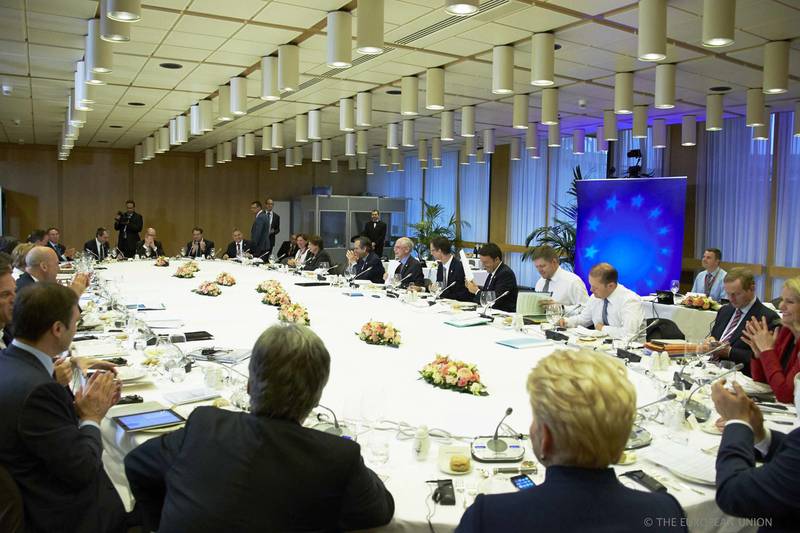 Instead of the opposite - the button to be looking for an overcoat, the leaders of the EU member states ruled that a button will be sought for an overcoat that is yet to be sewn. This is a relatively precise summary of the outcome of the informal dinner of the heads of state or government of the EU at which they discussed the results from the European Parliament elections and whether they should take them into account when electing a new president of the European Commission - should that be the so called Spitzenkandidat (the candidate of the party that won the biggest number of seats - EPP) or should that be a person chosen by the leaders from the informal list that circulated in parallel with the election campaign of the Spitzenkandidaten. The dinner on May 27th did not have the ambition to produce a final decision, but, instead, it revealed something very important - how will the EU function in the next five years. And the answer is not pleasant for the pro-European forces - more intergovernmentalism is to follow (deals between the member states beyond the control of Parliament).
Instead of the opposite - the button to be looking for an overcoat, the leaders of the EU member states ruled that a button will be sought for an overcoat that is yet to be sewn. This is a relatively precise summary of the outcome of the informal dinner of the heads of state or government of the EU at which they discussed the results from the European Parliament elections and whether they should take them into account when electing a new president of the European Commission - should that be the so called Spitzenkandidat (the candidate of the party that won the biggest number of seats - EPP) or should that be a person chosen by the leaders from the informal list that circulated in parallel with the election campaign of the Spitzenkandidaten. The dinner on May 27th did not have the ambition to produce a final decision, but, instead, it revealed something very important - how will the EU function in the next five years. And the answer is not pleasant for the pro-European forces - more intergovernmentalism is to follow (deals between the member states beyond the control of Parliament).
This conclusion stems from several facts. First is that after these elections the stakes for David Cameron's stay in British domestic politics have increased significantly. His campaign for reforms of the EU obviously has failed to collect the needed support to the benefit of Nigel Farage's populist and anti-European platform. David Cameron's Conservatives have sustained severe losses at the voting on May 22. They ended up a third political force with 23.31% of the votes after the Labour Party, who are second with 24.74% and Farage's UK Independence Party (UKIP) who are first with 26.77%. Bearing in mind that Farage does not promise a referendum on UK's stay in the EU after a possible consent by the Council to renegotiate the conditions for that, Labour leader Ed Miliband, too, does not promise such a thing, David Cameron has no other option but to seek support for himself, what an irony, precisely in the EU.
He has strong allies in the face of Dutch Prime Minister Mark Rutte and Sweden's Fredrik Reinfeldt. Cameron is in a very good dialogue with German Chancellor Angela Merkel, too. Given that the UK prime minster has promised a referendum on Britain's stay in the EU in 2017 if re-elected in 2015, this means that from now on his battle will be to be re-elected and the prospects are not very good. The question is to what extent possible concessions by the Union could deliver him the necessary support at home. Cameron wants a looser union, renegotiation of the free movement of people and a retreat of the EU from regulation at levels where it is not necessary. He has articulated before the dinner very tellingly his view about how the EU looks now: "too big, too bossy and too interfering".
His demands are directly related to Britain's economic recovery and the creation of new jobs. The British economy suffered a lot from the euro area crisis, posing the greatest challenge. When the crisis was in its peak, Cameron incessantly blamed his colleagues in the European Council that they were not doing enough to overcome it thus allowing it to reach the British shores. That is why London, generally, supported the efforts of the euro area member states to deepen their integration. This coincides with German Chancellor Angela Merkel's views and her influential Finance Minister Wolfgang Schauble who insisted integration to continue and was even ready to open the treaties for a reform.
Something French President Francois Hollande does not like at all. It is not clear if after the losses of traditional parties in some countries they will be even more reserved to opening the treaties because this will be a real opening of Pandora's box in the current eurosceptic, nationalistic and anti-European environment. Precisely because of the political situation all over the EU it is quite possible a process of renegotiation of the Union to take much more time than the previous repair, which delivered the big and sometimes non-functioning compromise from Lisbon.
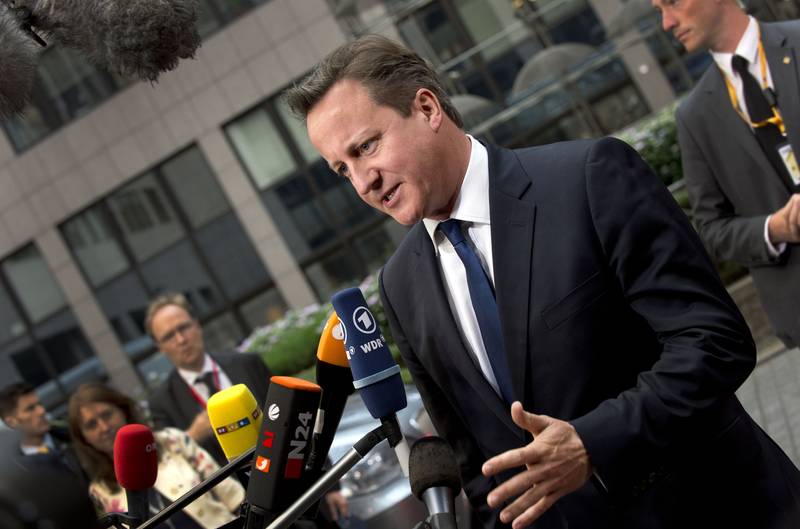 Everyone are aware that reforms are needed, but there is no consensus on how to come to them. Thus we arrive at the election of a European Commission chief who has to be a reformist, only a notch integrationist and to promote a looser union, all at the same time. Quite a difficult task. On Tuesday evening the leaders failed to reach a consensus on how to act. Some insisted the decision of the voters Jean-Claude Juncker to be installed on the post to be respected, who in the meantime received a mandate from the Conference of Presidents to form a majority. Others, however, insisted that Mr Juncker was not appropriate. According to David Cameron, he has too federalist views which does not fit into his plans. That is why, the leaders of the 28 tasked Herman Van Rompuy, the European Council president, to start consultations at two levels - with the European Parliament and with the governments.
Everyone are aware that reforms are needed, but there is no consensus on how to come to them. Thus we arrive at the election of a European Commission chief who has to be a reformist, only a notch integrationist and to promote a looser union, all at the same time. Quite a difficult task. On Tuesday evening the leaders failed to reach a consensus on how to act. Some insisted the decision of the voters Jean-Claude Juncker to be installed on the post to be respected, who in the meantime received a mandate from the Conference of Presidents to form a majority. Others, however, insisted that Mr Juncker was not appropriate. According to David Cameron, he has too federalist views which does not fit into his plans. That is why, the leaders of the 28 tasked Herman Van Rompuy, the European Council president, to start consultations at two levels - with the European Parliament and with the governments.
By June, the consultations must be complete to allow a compromise for the regular June EU summit which, as the tradition goes, draws the future of the Union.
What should the overcoat be?
Before choosing the button, by the June summit Herman Van Rompuy has to be ready with the pattern and the design of the overcoat. It has to fulfil several criteria. First and foremost, a new, oriented to the future programme for growth, competitiveness and jobs is needed. Obviously this is a recognition that the agreed under pressure by Francois Hollande Growth Pact has failed. Second, the leaders want a well-functioning and more developed Economic and Monetary Union (the eurozone), but by keeping the Union as a whole. This is a mantra that has been repeated for several years while the construction of the banking union was going on and is aimed at those member states that are either not in the euro area or never want to be. Climate change and the creation of an energy union are also a part of the design which has to be presented at the June summit for approval.
Very important is also the guideline for "consolidation" of the zone of freedom, security and justice. This includes migration, crime and fraud. Again there is talk about strengthening the EU foreign policy, however, again, on the basis of a mix of national and common European tools. On this issue, too, it will be very interesting to see what an approach will be selected by the designers. So far, Herman Van Rompuy has received "designs" from six member states and in the coming weeks he starts an intensive discussion with the rest. Only when the next five-year programme of the EU is drawn, the button will be chosen and that is who should lead the Commission in that period. This programme will be the mandate 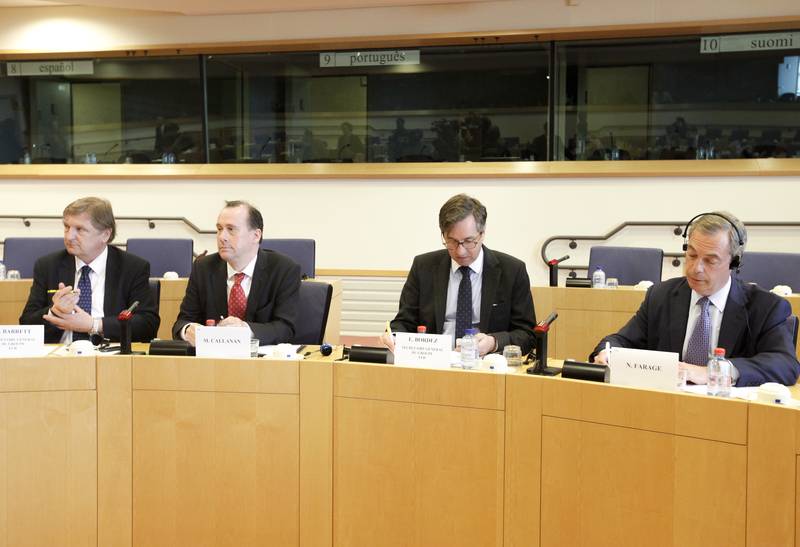 of the next European Commission.
of the next European Commission.
Will an end be put to "Brussels governs with unelected bureaucrats"?
Hardly. In the past mandate of the Commission, which passed entirely under the star of the euro area crisis, a major accusation of those who endured the decisions to overcome the crisis was that these decisions are taken by "unelected bureaucrats in Brussels". Something which is not very true and this is fact number two. In the first years of the crisis, when euro area countries were falling one by one like a domino, the governments, that is the Council, were those who decided whether Greece should be given a loan, on Portugal, or what to do with Spain because of the lack of tools at European level. Later, the tools were established, but they, again, were agreed by the heads of state or government. The Commission was tasked at a summit to present proposals which then were approved by the Council after negotiations with the European Parliament, which brought a lot of transparency into the process.
That is why these elections were recognised by many European bureaucrats as a chance, finally, the Commission to be granted the necessary political weight so that people will not have an argument to claim that their fates are controlled by unelected officials. At the May 27th dinner, some of the leaders insisted an "automatism" to be avoided when the European Commission chief is elected, which means to choose the Spitzenkandidat of the political force that won the elections. According to them, the treaty does not explicitly say that it should be so. It is a fact, however, that it also does not say explicitly that it should not be the Spitzenkandidat. German Chancellor Angela Merkel tried to balance between the two theses by focusing on serious interpretation of the formulation in the Treaty, which only says that the outcome of the elections has to be taken into account. It is clear that when this formulation was agreed a loophole was left in case the Union goes for more integration or, as is the current situation, when there are centrifugal forces.
The third fact is that the leaders who are from the EPP family have elected at a special congress in Dublin a Spitzenkandidat and vowed to support him. The fact that some leaders changed their mind, like Hungary's Prime Minister Victor Orban, caused outrage with others, like Finland's Jyrki Katainen. Outraged was also Croatia's Prime Minister Zoran Milanovic, who is from PES. Before the dinner Mr Katainen, who was one of the names on the "informal list", said that what has been agreed stays and that he himself campaigned for Juncker, which is why he cannot change his mind. His Croatian colleague Milanovic, also on his way in for the summit, said that choosing a person outside the Spitzenkandidaten will be practically deceiving voters.
The treaty does need a reform
 The EU undoubtedly needs a reform. As it became clear in the past mandate, the Treaty of Lisbon proved to be too small for the level of economic interconnectedness, especially in the euro area. Now the big question is how to make an omelette without breaking the eggs, in other words how to keep the euro area moving toward deeper integration while in the same time keep the non-euro countries happy. A very tough dilemma, the solving of which is expected to begin in June. There is a big danger the leaders, again, to respond to short-term domestic challenges instead of laying out a long-term general vision. In order for the Union to remain in the shape it is now, this will require more intergovernmental agreements. Something that satisfies UK entirely, but not the pro-European forces in the European Parliament which, still, are a majority. If that happens, the European Parliament will lose its influence and this will happen with assistance from the inside - the eurosceptic and nationalistic groups. Against this background, it seems that the past five crisis years will seem nothing compared to what is to come.
The EU undoubtedly needs a reform. As it became clear in the past mandate, the Treaty of Lisbon proved to be too small for the level of economic interconnectedness, especially in the euro area. Now the big question is how to make an omelette without breaking the eggs, in other words how to keep the euro area moving toward deeper integration while in the same time keep the non-euro countries happy. A very tough dilemma, the solving of which is expected to begin in June. There is a big danger the leaders, again, to respond to short-term domestic challenges instead of laying out a long-term general vision. In order for the Union to remain in the shape it is now, this will require more intergovernmental agreements. Something that satisfies UK entirely, but not the pro-European forces in the European Parliament which, still, are a majority. If that happens, the European Parliament will lose its influence and this will happen with assistance from the inside - the eurosceptic and nationalistic groups. Against this background, it seems that the past five crisis years will seem nothing compared to what is to come.
But, still, there is a solution. Timothy Garton Ash, the famous British specialist in EU affairs, wrote in a comment for The Guardian these days that the question "More or less Europe?" is wrong. The right question, according to him, should be "More Europe where and less Europe where?". And the answer is simple. More Europe where it already exists on economic, financial and human level but lacks political form or where it is strongly necessary, for instance, at energy level. And less where it never existed simply because it was never needed there. So, the question the EU should answer while designing the overcoat, should be "How much do we agree to pay for Britain's stay in the EU?". Or, maybe, for the re-election of David Cameron for a second term?
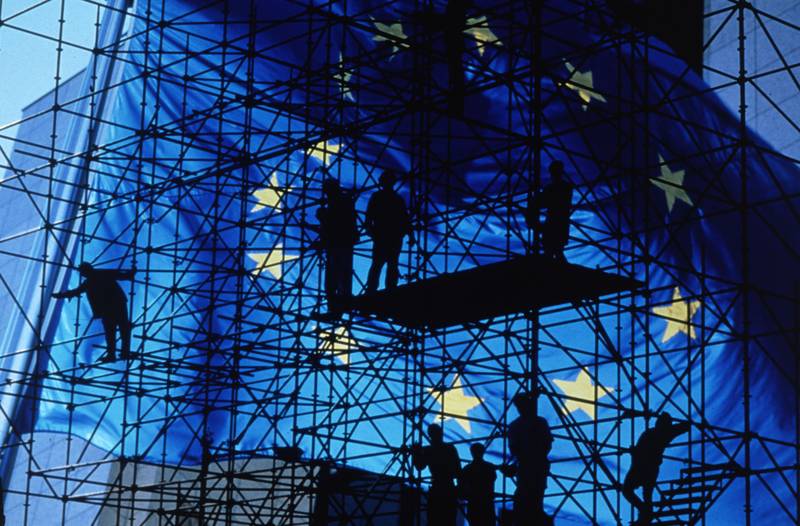 | © European Commission
| © European Commission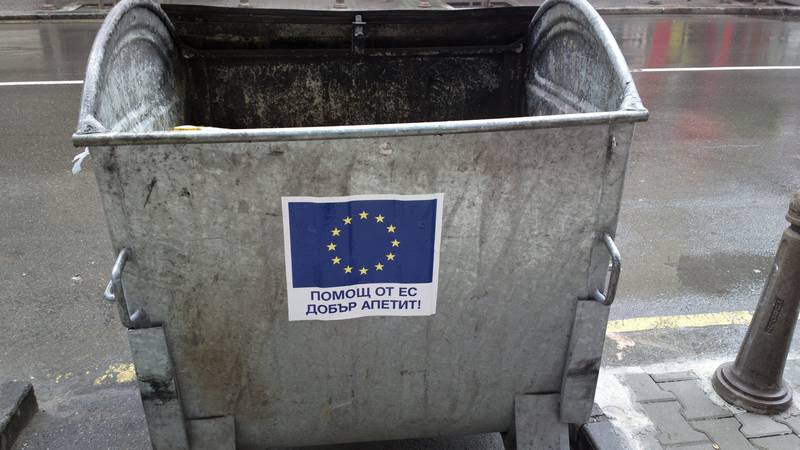 | © euinside
| © euinside Angela Merkel | © Council of EU
Angela Merkel | © Council of EU